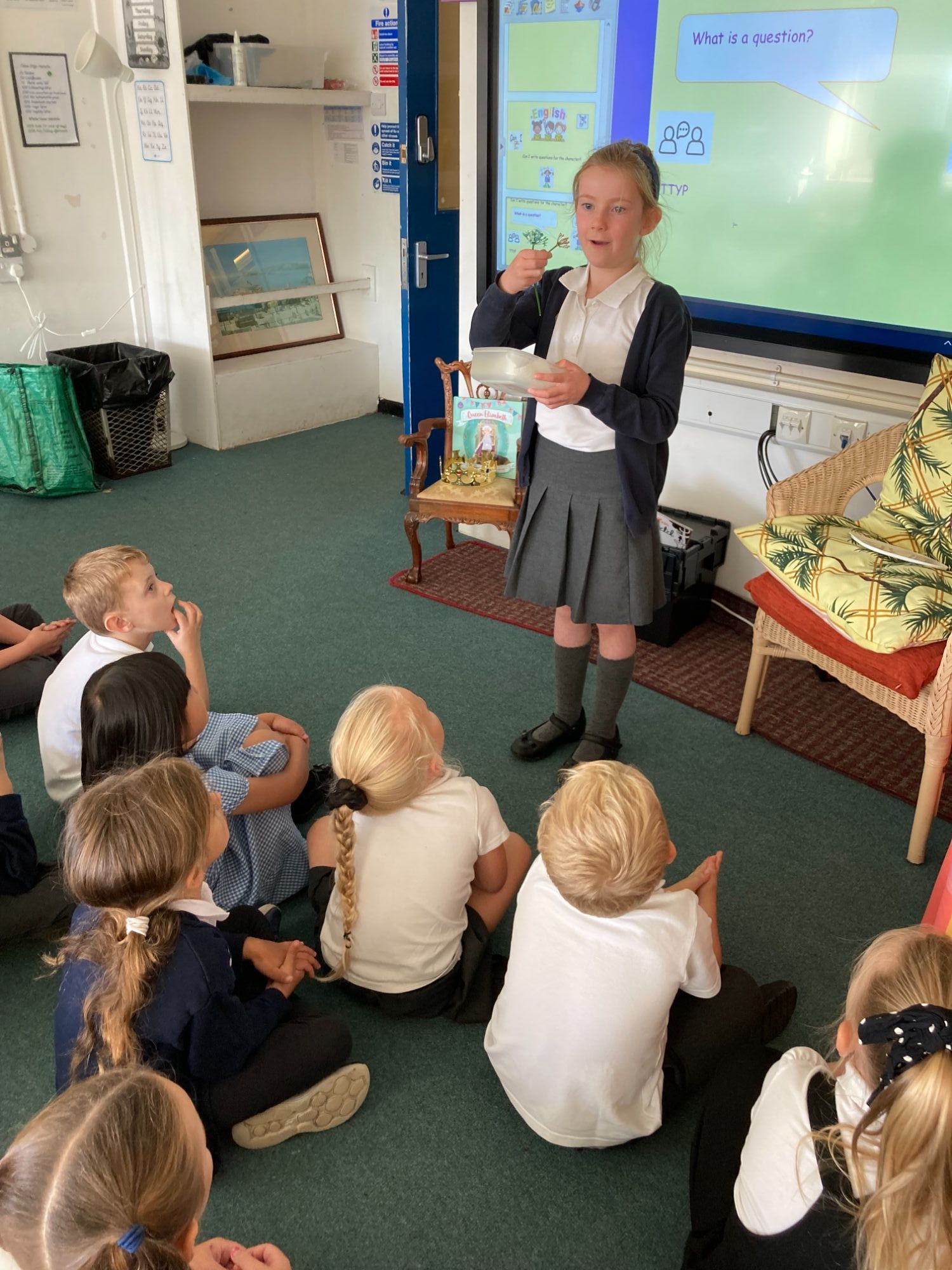Oracy
What is Oracy?
Oracy is the ability to express thoughts and communicate effectively through spoken language. Good oracy skills are essential for helping children to be better thinkers and more articulate in their communication. In doing so they become more confident and develop a key skill that will help them in whatever path they take in life.
"Oracy is to speaking, as literacy is to reading and writing, and numeracy is to maths.” English Speaking Union
Why is Oracy Important?
Did you know….?
- On entry to school, a disadvantaged child’s spoken language development is on average significantly lower than their more advantaged peers.
- Without additional support, these gaps grow as children move through school, widening from just a few months at age six, to five years difference by the age of 14.
- On leaving school, children with poor verbal communication skills are less likely to find employment and more likely to suffer from mental health problems.
Good oracy is essential, not only to reduce these gaps between lower-attaining children and their peers, but for every child to become effective communicators, not just in school but in their future careers and lives beyond.
Oracy at Woodfield
At Woodfield we are committed to teaching children how to make effective use of their voices and become effective communicators. We have embedded oracy at the heart of our curriculum and strive for our classrooms to be rich in talk where conversations start with a framework to follow (‘scaffolded’) and talk is used to develop higher-order thinking skills. Teachers plan for talk in each subject and structure this carefully. Children are given the opportunity to learn through talk and to talk.
We have adopted the Voice 21 framework for oracy to plan and assess this across the school. The framework breaks down the teaching into four strands:
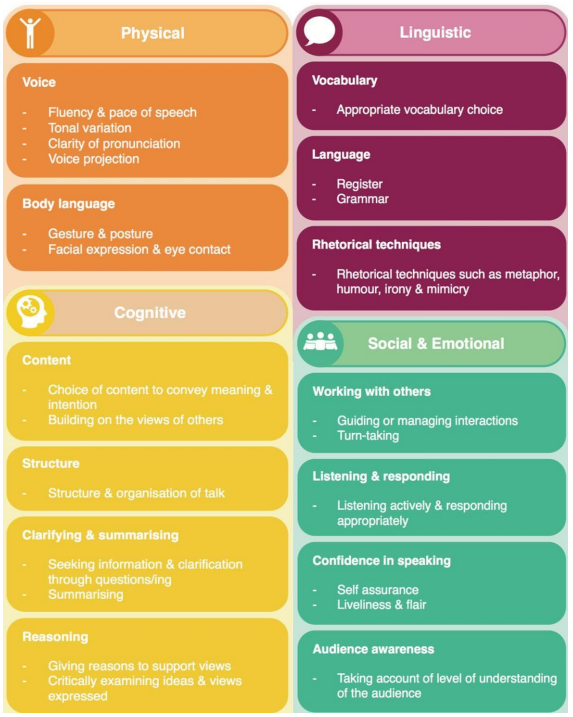
Some of the ways we actively promote oracy at Woodfield are:
- Embedding oracy through all lessons across the whole of the curriculum.
- Specific oracy sessions across the year which focus on teaching specific speaking and listening skills.
- Discussion guidelines used and displayed in all classes to structure talk.
- Sentence stems displayed in classes and used throughout all lessons to help children to scaffold different types of talk.
- Teaching different roles in groups to help children collaborate and problem solve.
- A weekly Talk Assemblies in Key Stages focusing on an issue in the news that week.
- Specific praise, linked to oracy, given using Class Dojos.
- ‘The Big Question,’ linked to our core values, shared in assembly and discussed in class.
- Children given longer thinking time to prepare their responses.
- Using a variety of groupings to enable a different type of conversation. Use of talk partners and talking trios.
- Class assemblies.
- Participation in events across the Trust such as debating.
- Different group structures; pairs, trios and groups.
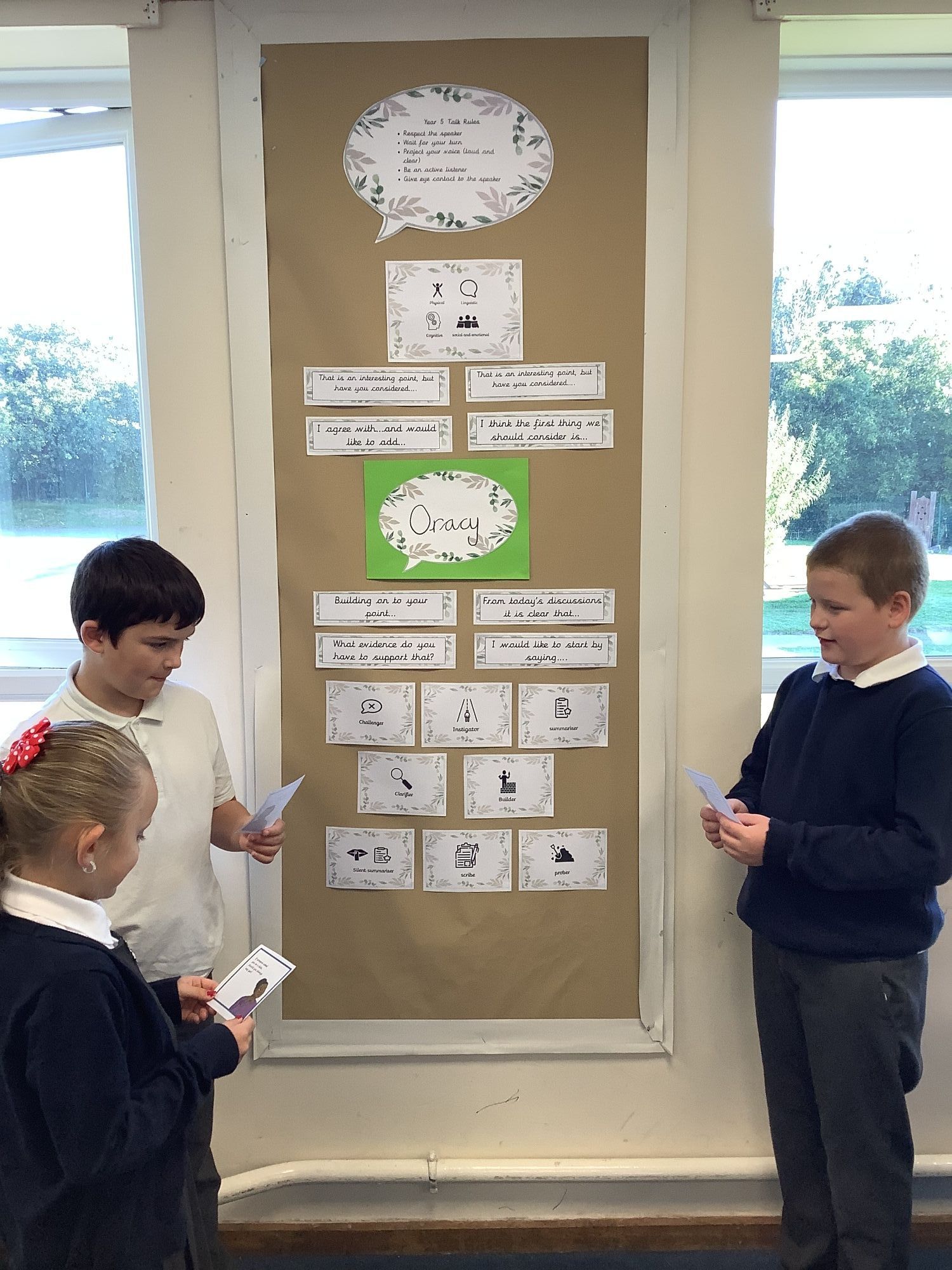
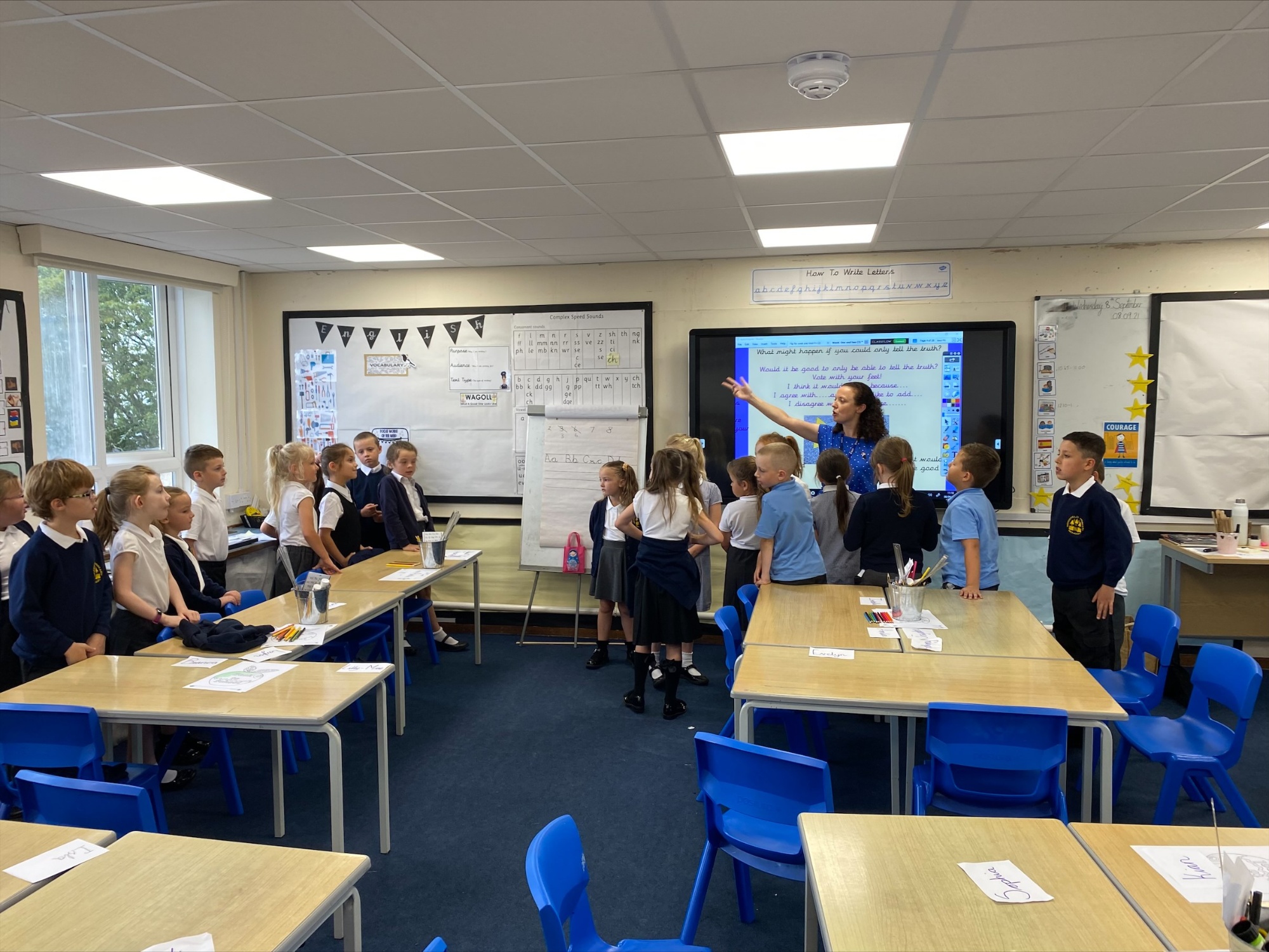
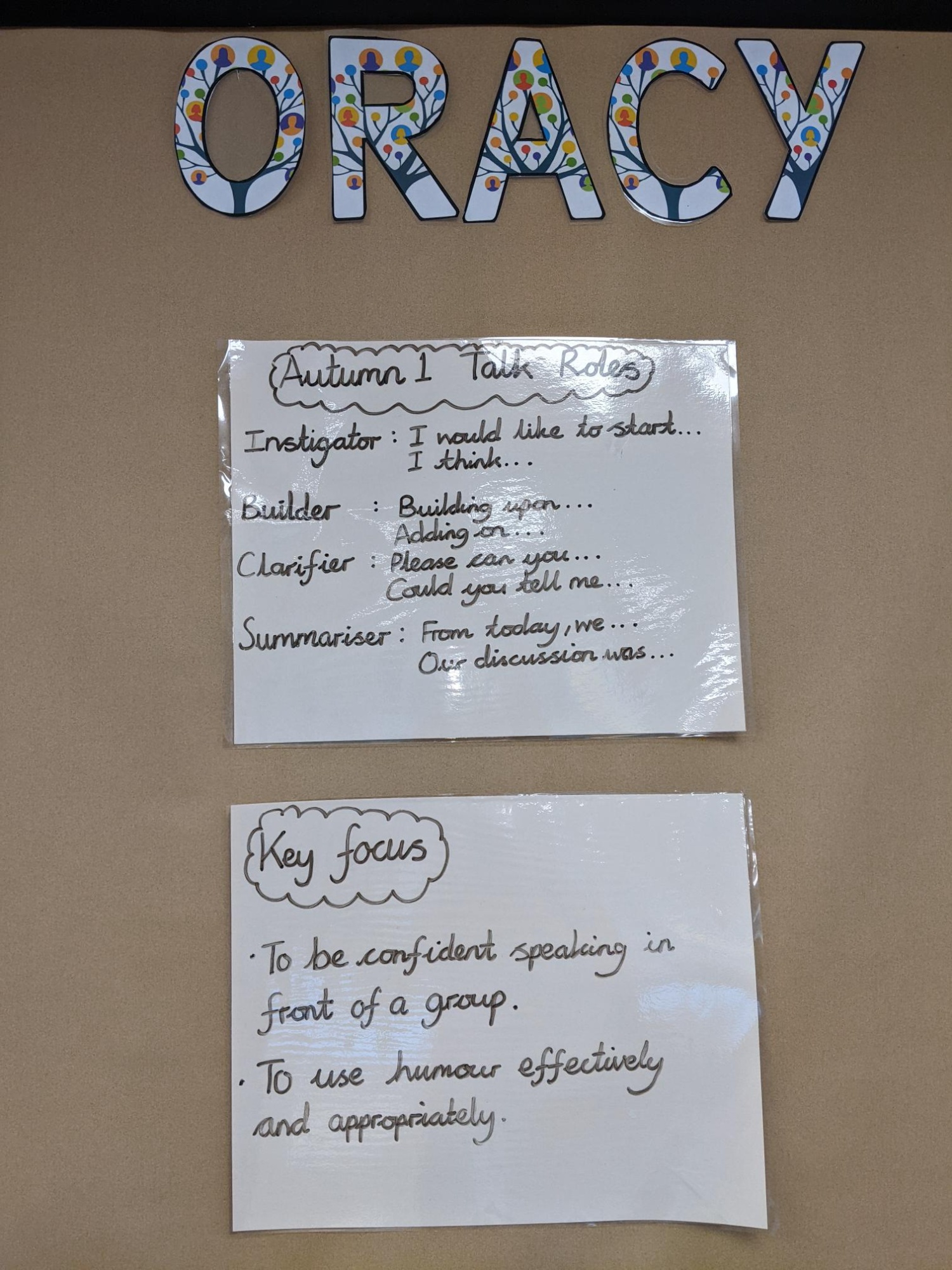
Each term we also have a whole school ‘Oracy focus’ day:
- Autumn – VIP talks where children present a short talk in front of an audience.
- Spring – No Pens Day Wednesday. A whole day devoted to Oracy.
- Poem in my Pocket Day – Children perform a poem to their class as part of International Poetry Day
- Summer – Poetry Slam. Performing poetry to a wider audience.
